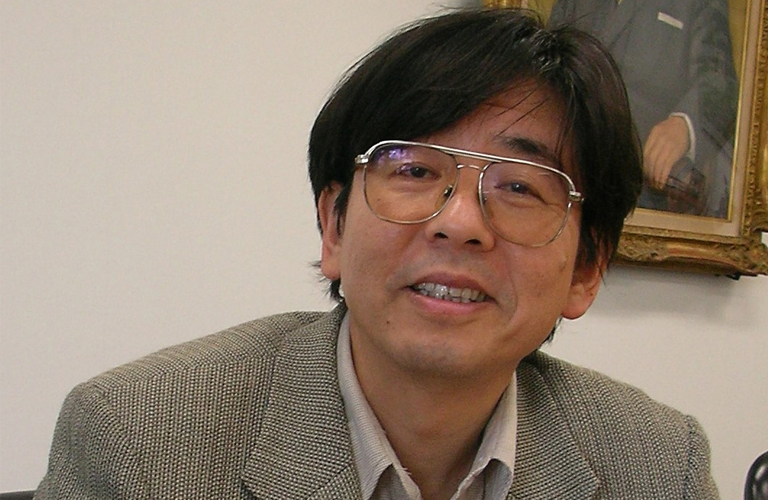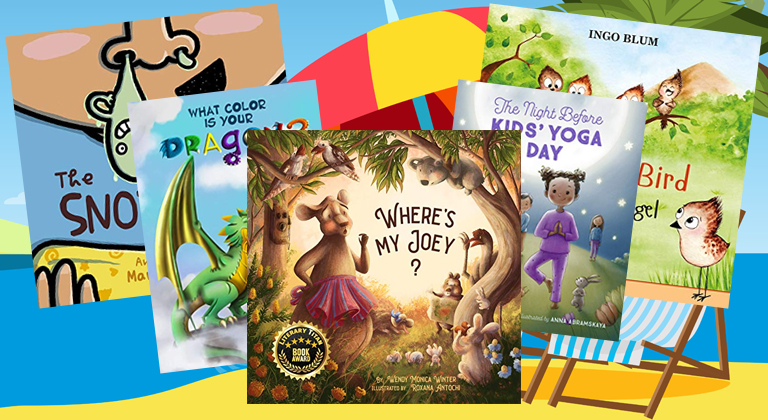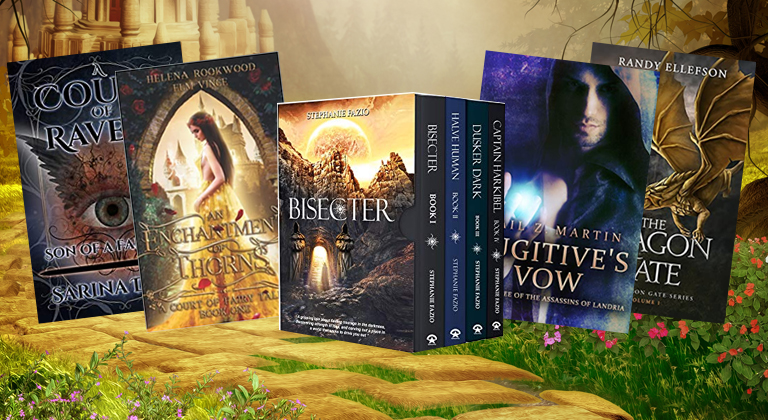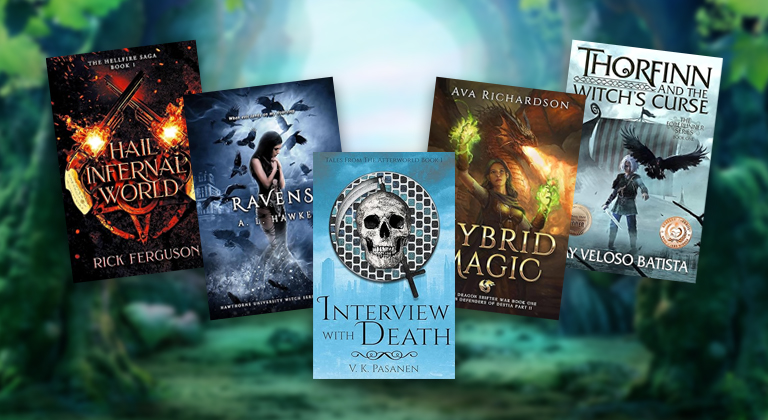Author Spotlight Interview: Tetsuo Ted Takashima
Tetsuo Takashima is an award winning Japanese author that has sold hundreds of thousands of copies of his more than 30 books, but has only recently started to translate those books into English, making him a new author to many North American readers. With the help of a translator, we were able to interview him about his books, many of which skillfully weave science and technology together to create thrilling novels that leave readers with a new way of looking at important issues and themes.
HG: How would you describe yourself to somebody who isn’t familiar with your writing yet?
TT: I’m a failed scientist turned author. I studied for a year under a UCLA graduate program, which is where I ran against the limits of my talents with regard to the field of physics. So I’d like to continue writing novels that make use of my current scientific knowledge.
HG: You’ve written many books that have been published in Japan, and this is the fifth one that you’ve had translated for the North American market. How has that process been for you?
TT: It’s the fifth including co-authored nonfiction books. I’ve been asking a company named Museyon for their help since a book ago (The Wall). I have total confidence in their work, consulting with them through online means and getting the books localized for North American reading audiences. The book whose translation we’re publishing now, The Gene of Life, has been affected by a large time lag (which comes with Japan-to-America publishing), and the protagonist has been localized into an American, so it took a lot of time making all of the little adjustments to the text that necessitates. It was a ton of work, but the end result is excellent. I encourage everyone in the English-speaking world to read it, and I express my gratitude to those who do.
HG: What inspired you to write The Gene of Life? The discovery made at Limone sul Garda, clones, Neo-Nazis, GMOs — what exactly was happening to make you explore these themes?
TT: Humanity has sought eternal life since time immemorial. About twenty years ago, life-science discoveries were under public scrutiny and discussion — genes and genomes, cloning and regenerative cells — and all are linked to immortality and a new concept of life. Cloning, in particular, gave us a new avenue of inquiry regarding life. The potential to artificially create genetically identical life forms necessitates fresh new modes of thought with regard to both life and death. And I felt that in the future, even the way we view what it means to be human will change.
At that time the resurgence of Nazism in Europe was in the news. COVID-19 began in 2020, and is still with us. I wouldn’t be surprised if death feels more present than ever before in the lives of most people. Vaccination is our sole means of combating this virus, and vaccines are the fruit of the blood, sweat and tears of a long list of researchers, including medical doctors and scientists. Through their efforts, I feel humanity’s wisdom, courage, kindness, and tenacity.
The protagonist of The Gene of Life is forced to unravel mysteries revolving around our genetic code in order to extend his own life, in addition to the lives of others. He gains powerful allies and fights against his destiny. Humanity is truly a life-changing force.
HG: Speaking of that book, Katya is smart, brave, multi-talented, and beautiful. Who inspired her character?
TT: She is my ideal woman. I’m told I follow the same pattern, but if you ask me, it’s okay if the women I personally find charming are similar. If I have to choose a single inspiration, I’d have to say Marie Curie, a scientist who received the Nobel Prize twice. I’d heard of her when I was in elementary school, but the year I enrolled in university I read the biography written by her daughter, Ève Curie. That is when I began to admire her more and more. She was a hard worker who was both intelligent and beautiful, and a woman who dedicated her life to science.
As for inspiring actresses, I like Sigourney Weaver and Meryl Streep.
I find anyone, man or woman, who strives to forge their own destiny in the face of adversity noble and admirable.
HG Do you think that, through the march of science, humanity will attain eternal life? If so, where do you think society is headed?
TT: I often wonder what makes a person a person, or what makes humans human.
The heart is one of the most important organs in the human body. It’s our irreplaceable blood pump. People tend to equate the heart, as in the organ, with the heart, as in our spirit. Yet of course, it’s the brain that allows us to be consciously aware that we are who we are. It’s the brain that perceives sounds, colors, odors, etc. The brain remembers, cogitates, acts on stimuli, and does many other things as well.
Pardon this morbid thought, but imagine a human body dismantled into its limbs and organs. I think that ultimately, it’s only the brain that’s needed in order to continue perceiving ourselves as ourselves. I also think emotions are related to the brain. It’s the only body part that can’t be replaced, or you stop being you. The brain is the self.
The next novel I’m thinking of having translated into English is Floating. In it, the protagonist dies in a traffic accident and becomes the subject of a project that entails keeping only the brain alive (which is related to what they were researching at the university in The Gene of Life). As might be expected, though, death comes for him eventually.
Death’s existence makes life shine all the brighter. That, too, is a fact of life, I think.
“Enjoy life, for it is both beautiful and short.”
“Death is part of what makes us human.”
HG: Do you have any other interesting facts to share with regard to The Gene of Life?
TT: I was thinking about publishing the book in English and having it made into a movie around twenty years ago, too. That is why I wrote it to begin with. I think a great number of people all around the world are interested in science, history, humanity, life and death, and the divine. I wanted to write a novel based on those concepts and with a global-scale setting, and I wanted the story to speak to the whole world. Perhaps I was a bit too ambitious. The novel is set in Germany, Brazil, the Vatican, and the US.
In 2013, Nanjing University put out a Chinese translation.
I sprinkled a lot of phrases I like into the book:
“We live to enjoy life, and fun starts with a smile.”
“Don’t rush, but don’t dawdle either. Life is profound, if short, and the totality of life is beautiful.”
I’d like to put those words into practice.
Finally, after twenty years, a translation for the English-speaking world is coming out. I thank all of the people who have assisted and encouraged me. There is one other wish that has yet to be realized, though. Steven Spielberg adapted Schindler’s List and other projects into film. I’m praying this catches his eye!
HG: We hope so, too! Tell us a little bit about your writing process. Has it changed since the pandemic? Where and when you write?
TT: I decide on a theme I’m intrigued by, then I gather and read materials on that theme, after which I start deciding on the characters and plot. I’m interested in science, world affairs, and politics, so that’s what the themes tend toward. That said, a book I wrote over a decade ago (Shuto Kansen i.e. “contagion in the capital”) is about a pandemic caused by a virus with a high fatality rate, and it sold around 200,000 copies in total, so I’ve had more chances to appear in the media (albeit only in Japan).
I write in a working area that’s in the same apartment building as my home. I’m a morning person, so I focus and get some writing done mostly before noon.
HG: Can you tell us anything about your next book or other new projects that you’re currently working on? What can readers look forward to?
TT: I’m writing a novel about electric cars. Once that’s done, I’m thinking of undertaking a novel about global warming, which I believe is an issue the people of the world need to think more about.
I love American movies, including Hollywood fare; my novels are influenced by them. I’d love for them to be adapted to film.
HG: Thanks so much for taking the time to allow us to get to know you, Takashima! For readers that want to find out more about your stories and future projects, where should they go to connect or learn more?
TT: My website is in both Japanese and English, though I’d like to improve the English language version of it. You can see the trailer for The Gene of Life there, or just click here to view it on Youtube.
Readers in the Hidden Gems ARC program enjoy books from authors like Takashima, and many more in over 15 different genres. If you want to read more, for FREE, just sign up for the Hidden Gems ARC program. Each morning we send out offers for books from any of the genres you’ve chosen to hear about and selected readers will be sent those eBooks to read and review on Amazon.











